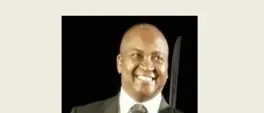PROTECT yourself against scams promising big money for seemingly easy tasks
Paula Luckhoff
7 August 2024 | 18:56Wendy Knowler has the lowdown on being savvy when it comes to ads luring in people desperate for income - on The Money Show
There are a lot of scams out there, many of them targeting people desperate to earn more money, or even just some income.
They're often lured in by Facebook ads promising big money for seemingly easy tasks.
On The Money Show, consumer journo Wendy Knowler puts the spotlight on work from home scams, with some scary case studies.
Knowler says there's been a proliferation of these fraudulent schemes - where she used to get a few appeals for help in a week, she's now receiving a minimum of one or two A DAY.
"There are people losing big, big, big money; and borrowing the money to then lose it to the fraudster!"
"I know many people will be saying, 'really, do people still fall for those things?'. And, the answer is YES. So let's not judge; let's just normalise talking about it."
Wendy Knowler, Consumer Journalist
RELATED:
BEC scam warning: If you send invoices via email for payment, TRIPLE check the banking details
Financial scams on the increase: 10 tips to protect yourself
PROTECT YOURSELF, Knowler urges.
If you get in touch with what you think is a legitimate company and they divert you on to Whatsapp or Telegram, and they want you to transfer money into an account, know that this is not legit, she says.
"Apart from some possible crumbs early on, money will go from you to them. Lots of it, if you believe the nonsense."
Wendy Knowler, Consumer Journalist
Knowler's advice: Take the business name they give you, type it into a search engine and add the word SCAM.
It’s that simple, she says.
"If you’re a woman and they start addressing you as 'Dear' - that’s a massive red flag klapping you in the name. Unprofessional, inappropriate and a scammer’s favourite."
Wendy Knowler, Consumer Journalist
And that age-old dictum tends to always hold: if it’s too good to be true, it is.
Knowler also encourages people to talk about these scams in their social circles. Not eveyone is as clued up as you may think.
Listen to Knowler's detailed advice in the interview audio up top















